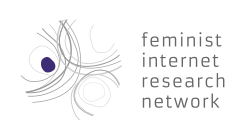Feminist Internet Research Network: Meta-research project report
The Feminist Internet Research Network (FIRN) and the Association for Progressive Communications (APC) Women’s Rights Programme’s knowledge building strategic team conducted a meta-research project that focused on the methodological processes and ethical practices of the eight research projects implemented as part of the FIRN project. Meta-research is the study of research, including its methods and how research is reported and evaluated, in order to understand and improve upon research and research processes.

The meta-research project formed part of the broader FIRN project and created a feminist space for dialogue to explore the complexities of doing internet research. This was done through the critical exploration of the research methodological processes and ethical practices of the eight FIRN research projects. The aim of the meta-research project was to bring FIRN project partners into conversation with each other through this report.
From the very beginning, the meta-research project understood that research on the internet is complex and that current methodological approaches and research tools are not sufficiently reflexive to account for “feminist thinking around dynamics of power, politics of location, relationship with participants, access to digital data and so on.”
Introduction
The Feminist Internet Research Network (FIRN) and the Association for Progressive Communications (APC) Women’s Rights Programme’s knowledge building strategic team conducted a meta-research project that focused on the methodological processes and ethical practices of the eight research projects implemented as part of FIRN. Meta-research is the study of research, including its methods and how research is reported and evaluated, in order to understand and improve upon research and research processes.
FIRN is a three-and-a-half-year collaborative and multidisciplinary research project led by APC and funded by the International Development Research Centre (IDRC). The project draws on the study Mapping research in gender and digital technology carried out by APC and commissioned by IDRC, and the Feminist Principles of the Internet (FPIs) collectively crafted by feminists and activists, primarily located in the global South. FIRN aims to build an emerging field of internet research with a feminist approach to inform and influence activism and policy making.
The focus of FIRN has been on the making of a feminist internet as critical to bringing about transformation of gendered structures of power that exist online and on-ground. Projects within FIRN strive to bring about change in policy, law, and internet rights discourse through data-driven and evidence-based feminist research, with a core focus being to ensure that women and gender-diverse and queer people and their needs are included in internet policy discussions and decision making. Key areas of research of the FIRN projects are access (usage and infrastructure); datafication (artificial intelligence); online gender-based violence; and gendered labour in the digital economy.
The meta-research project formed part of the broader FIRN project and created a feminist space for dialogue to explore the complexities of doing internet research. This was done through the critical exploration of the research methodological processes and ethical practices of the eight FIRN research projects. The aim of the meta-research project was to bring FIRN project partners into conversation with each other through this report. From the very beginning, the meta-research project understood that research on the internet is complex and that current methodological approaches and research tools are not sufficiently reflexive to account for “feminist thinking around dynamics of power, politics of location, relationship with participants, access to digital data and so on.”
As a result, the process of doing meta-research on feminist internet research is particularly complex and layered. The lines blur between literature, theories and methodologies when doing research on research. In the case of feminist internet research, sometimes the theoretical or conceptual frameworks are pieced together from different fields – much of internet research is transdisciplinary, as is feminist research and theory. As one of our partners reflected, if there is a feminist internet research methodology, “it would be in the framing of the research.” (P5.1) Feminist internet research is about the framing and the processes, but what emerged in looking at the theoretical frameworks, methodologies, research designs, research principles and ethical practices was that the researchers – and their values, principles, and contexts – were central to what made internet research feminist.
The FIRN project team members along with their partners collaboratively designed the Feminist Internet Ethical Research Practices document, which informed the research practices of the projects. Key to the development of this document was the need for a specific ethical framework that relates to feminist internet research. The document drew on “decades of feminist work in relation to ethics, care, intersectionality, positionality and standpoint, and also more recently on work in relation to internet-related and data-driven research.”
This document provided FIRN partners with support during their research journeys and served to ensure that ethical reflexivity would be continuous and embedded in the process of doing feminist internet research, and not only serve as something to be considered at the start of the project. The FIRN projects were informed by concepts that emerged from the collective engagement of partners and are indicative of their shared values. The concepts that resonated with partners were situatedness, positionality, standpoint, intersectionality, feminist, consent, accountability, reciprocity, care, vulnerability, safety, connections and networks. These are grouped into the following pillars: standpoint theory (and situated knowledge), intersectionality, reflexivity, and a feminist ethics of care.
